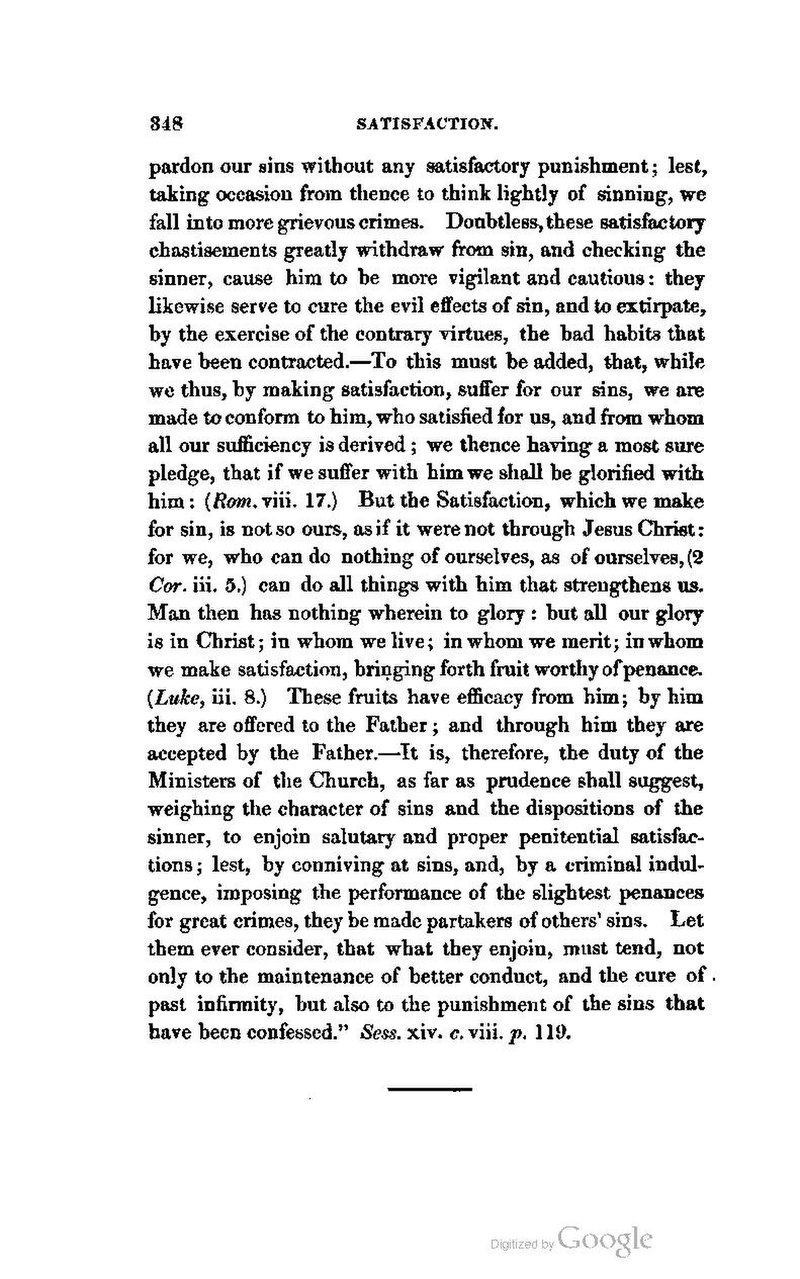pardon our sins without any satisfactory punishment; lest, taking occasion from thence to think lightly of sinning, we fall into more grievous crimes. Doubtless, these satisfactory chastisements greatly withdraw from sin, and checking the sinner, cause him to be more vigilant and cautious: they likewise serve to cure the evil effects of sin, and to extirpate, by the exercise of the contrary virtues, the bad habits that have been contracted.-To this must be added, that, while we thus, by making satisfaction, suffer for our sins, we are made to conform to him, who satisfied for us, and from whom all our sufficiency is derived; we thence having a most sure pledge, that if we suffer with him we shall be glorified with him : (Rom. viii. 17.) But the Satisfaction, which we make for sin, is not so ours, as if it were not through Jesus Christ: for we, who can do nothing of ourselves, as of ourselves, (2 Cor. iii. 5.) can do all things with him that strengthens us. Man then has nothing wherein to glory : but all our glory is in Christ; in whom we live; in whom we merit; in whom we make satisfaction, bringing forth fruit worthy of penance. (Luke, iii. 8.) These fruits have efficacy from him; by him they are offered to the Father; and through him they are accepted by the Father.-It is, therefore, the duty of the Ministers of the Church, as far as prudence shall suggest, weighing the character of sins and the dispositions of the sinner, to enjoin salutary and proper penitential satisfactions; lest, by conniving at sins, and, by a criminal indulgence, imposing the performance of the slightest penances for great crimes, they be made partakers of others' sins. Let them ever consider, that what they enjoin, must tend, not only to the maintenance of better conduct, and the cure of past infirmity, but also to the punishment of the sins that have been confessed.” Sess. xiv. c. viii. p. 119.
Page:Faithcatholics.pdf/413
This page needs to be proofread.
